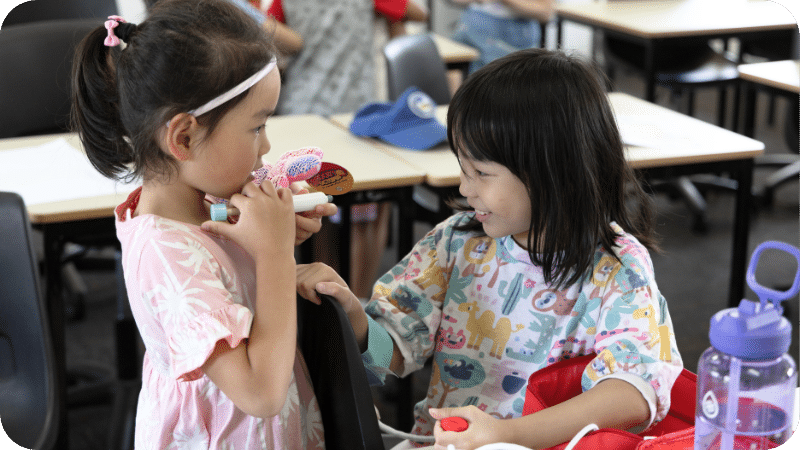How Can You Build Confidence?
17 June 2025
Top Tips to Boost Self-Esteem
So, how can you build confidence?
It’s simpler than you think.
You might wonder how you can become more self-assured in different situations.
In this article, you’ll find practical steps to boost your self-esteem, recognise signs of low confidence, and adopt daily habits that strengthen self-belief.
Let’s dive into building your confidence.
Key Takeaways
- Self-confidence can be developed through intentional actions and mindset shifts, positively impacting health, career, and relationships.
- Recognising signs of low self-confidence, such as negative self-talk and avoidance of new experiences, is crucial for addressing and improving self-esteem.
- Daily habits like celebrating small victories, practising positive self-talk, and prioritising self-care can significantly boost self-esteem and confidence.
- Developing self efficacy—your belief in your ability to succeed—plays a key role in building lasting confidence and achieving your goals.
Understanding Confidence

Self-confidence refers to the belief in yourself and your abilities. It’s about feeling comfortable in your own skin and trusting that you can handle whatever life throws at you. Confidence is not an innate trait; it can be developed and strengthened over time. Just as you can build muscle through exercise, you can build self-confidence through intentional actions and mindset shifts, fostering confidence and self-esteem.
A strong sense of self-confidence greatly enhances many aspects of life, such as health, career, and relationships. People with healthy self-esteem tend to perform better academically and professionally, form stronger personal connections, and experience greater overall happiness. Confidence can act as a powerful predictor of life outcomes, influencing everything from job satisfaction to relationship strength.
However, confidence can fluctuate depending on the situation. Feeling more confident in familiar areas and less so in new or difficult situations is natural. Viewing these fluctuations as opportunities to feel confident for growth rather than obstacles is key to enhancing your ability.
It’s important to recognise individual differences in how people experience and express confidence, as everyone has unique strengths and challenges.
Remember, even the most confident people tend to face moments of self-doubt, but they use these moments to reflect, learn, and grow in their lives.
Why Confidence Matters

Self-confidence encourages personal growth. This self-assurance positively impacts both your career and personal relationships. Believing in yourself makes you more likely to take risks, pursue opportunities, and achieve your goals. Confidence enhances self-assurance, improves decision-making, and fosters perseverance. It helps you view challenges as opportunities for growth rather than as obstacles.
Confident individuals experience easier decision-making and find excitement in facing new adventures. Because of their typically more decisive and problem-solving characteristics, they often achieve higher levels of academic and career success. Confident people celebrate their achievements and embrace new challenges.
Confidence is also linked to higher levels of well-being, including increased happiness and optimism. Confident children, for example, are better equipped to handle peer pressure, responsibilities, and emotional challenges, setting a strong foundation for their child’s confidence and future.
Recognising Low Self-Confidence
Experiencing low self-confidence can lead to various issues, including shyness, communication problems, and a general feeling of inadequacy. People who lack confidence often avoid new experiences due to fears of embarrassment or failure. This avoidance can create a cycle of negative thinking, where negative experiences perpetuate low self-esteem.
Low self-esteem often manifests as:
- A critical inner dialogue and an unwillingness to acknowledge strengths.
- Frequent comparison to others, particularly on social media, which can exacerbate feelings of low self-worth.
- A strong fear of failure and judgment leads individuals to shy away from social situations and challenges.
When low self-esteem persists over time, it can have a harmful effect on mental health and daily life. It’s associated with poorer mental health and a higher likelihood of engaging in harmful behaviours. Recognising these signs is the first step in breaking the cycle of low confidence and beginning the journey toward healthier self-esteem. One effective way to break this cycle is to replace negative thoughts with more positive and realistic ones.
How to Build Confidence from Scratch

Building confidence from scratch may seem daunting, but it’s entirely achievable with the right strategies. Confidence allows individuals to see challenges as opportunities for growth instead of obstacles. Factors that contribute to gaining confidence include developing self-confidence:
- Seeing yourself positively
- Challenging yourself
- Experiencing success
- Sticking to commitments boosts self-reliance and confidence.
Some effective strategies to build confidence include:
- Acting confident
- Reframing anxiety as excitement
- Visualising success
- Realising that failure is not the end of the world, which allows you to view mistakes as learning opportunities
- Aligning your choices with personal values to boost self-respect and enhance self-confidence.
Here are deeper insights into these strategies.
Act Confident
Have you ever heard the phrase, ‘fake it ‘til you make it’?
Acting confidently is crucial for enhancing self-esteem and overcoming anxiety. Neuroscience has uncovered that self-belief is more learnable than previously thought. Acting confidently, even when you don’t feel it initially, activates the brain’s success mechanisms. This creates a positive feedback loop where acting confident leads to successful outcomes, which in turn boosts your confidence.
A confident person is comfortable with themselves, takes risks, sets boundaries, accepts compliments graciously, and presents themselves authentically. They are decisive and secure in their self-presentation and behavior.
Acting confidently means taking action despite feeling anxious. For example, making eye contact, maintaining good posture, and speaking clearly can all portray confidence. These actions not only influence how others perceive you but also reinforce your own belief in your abilities. Over time, these behaviours become second nature, helping you feel more self-assured in various situations.
Confident people aren’t afraid to make a mistake. They see mistakes as part of the learning process and don’t let them undermine their self-worth. Model confidence shows both yourself and others that you’re capable of more than you thought.
Reframe Anxiety as Excitement
Viewing anxiety as excitement can improve performance in various tasks. When anxious about a new challenge, reframe those feelings as excitement about the opportunity to learn and grow. This shift in perspective can significantly change how you approach the situation.
Research shows that reframing anxiety as excitement can improve performance and confidence. Next time you feel butterflies in your stomach, remind yourself it’s your body’s way of preparing for something exciting. This mindset shift can make you feel more positive and confident, enabling you to tackle new challenges with enthusiasm rather than fear.
Visualise Success
Visualising successful outcomes reduces anxiety and improves actual performance. Visualising yourself succeeding activates neural circuits similar to those used when you experience real-life success. This mental rehearsal boosts confidence, making you feel more prepared and self-assured when facing challenges.
Visualisation reduces anxiety, enabling you to approach tasks with greater confidence. Regularly practising visualisation helps create a positive mental image of achieving your goals. This practice enhances performance and reinforces belief in your abilities.
Effective visualisation ultimately leads to better performance in real-life situations, allowing individuals to realise their full potential.
The Confidence Mindset
Developing a confidence mindset means cultivating a state of being where you feel self-assured and trust in your ability to handle whatever life throws your way. This mindset is closely tied to healthy self-esteem—when you believe in your own worth, you’re more likely to approach new challenges with optimism and resilience. Confident people celebrate not only their own achievements but also the successes of others, understanding that there’s room for everyone to shine.
A confidence mindset isn’t about never feeling fear or doubt; it’s about not letting those feelings hold you back. Confident individuals know that mistakes are simply a part of life and an opportunity to learn and grow. They use positive self-talk to encourage themselves, especially when stepping out of their comfort zone or facing something unfamiliar. By focusing on their abilities and strengths, they build self-confidence and become more self-assured over time.
Building this mindset takes practice and patience. Start by challenging negative thoughts and replacing them with positive affirmations. Surround yourself with supportive people who encourage you to take on new challenges and celebrate your progress. Remember, developing self-confidence is a journey—each step you take, no matter how small, helps you become more confident and improves your mental health. Embrace the process, and you’ll find yourself feeling more positive and ready to tackle whatever comes your way.
Daily Habits to Boost Your Self-Esteem

Solid self-esteem is crucial for building the confidence needed to face life’s challenges. Daily habits are vital in enhancing overall self-confidence. Recognising even small accomplishments can significantly boost self-esteem. Engaging in enjoyable activities fosters a strong sense of fulfilment and confidence.
Simple daily habits, like dressing in a way that makes you feel good or acknowledging your achievements, can offer a quick confidence boost.
Using positive resources, such as self-help materials, alleviates stress and reinforces confidence after challenging situations. Self-compassion encourages focusing on personal growth rather than seeking external validation.
Here are some daily habits that can help boost your self-esteem.
Practice Positive Self-Talk
Positive self-talk is a powerful tool for boosting self-esteem and confidence. Here are some ways to practice it:
- Be kind to yourself.
- Treat yourself with the same compassion you would offer a friend.
- Note and write down negative thoughts to identify patterns and replace negative self-talk with positive affirmations.
Starting your day with a positive statement about yourself sets a confident tone. Here are some practices to follow:
- Aim to list at least five positive things about yourself each day.
- Recall your strengths and successes when feeling envious of others.
- Use this practice to improve your mood.
- Increase your resilience during challenging situations.
Celebrate Small Victories
Celebrating small victories is a meaningful way to develop confidence. Acknowledging small wins creates a reinforcing cycle of confidence and motivation. Celebrating achievements creates a positive feedback loop that enhances self-esteem.
Consistently celebrate small victories to build confidence:
- Set personal goals and celebrate small achievements to foster pride.
- Reflect on where you started to help appreciate your progress.
- Acknowledge achievements to recognise your abilities and boost self-assurance.
By acknowledging your progress, you reinforce your belief that you can succeed, even in the face of challenges.
Set Realistic Goals
Setting achievable goals prevents discouragement and promotes a sense of accomplishment. Joining an exercise class or attending a social event can serve as achievable challenges. If a goal seems too lofty, adjust it to achieve goals that are more realistic and achievable.
Setting realistic goals helps you focus on steady progress instead of feeling overwhelmed. This approach builds confidence gradually and sustainably, leading to long-term success.
Building Confidence Through Relationships
Confidence improves interpersonal skills in several ways:
- It makes it easier to establish effective relationships. Having friends who uplift and encourage you is essential for building lasting confidence.
- It makes you more comfortable communicating and supporting others, strengthening connections.
- Helping others boosts your confidence, creating a cycle of mutual support and appreciation.
Modelling confidence in front of children can create a lasting positive effect on their self-esteem. Parents should make positive comments about themselves and others to promote confidence in their children. Recognising your worth helps develop self-confidence in relationships, ensuring you appreciate both your own and others’ value.
Here are some practical tips for building confidence through relationships.
Surround Yourself with Positive People
Surrounding yourself with positive people can uplift you and reduce self-doubt. Building relationships with positive individuals who appreciate you is crucial for boosting confidence. Your social circle significantly impacts your self-esteem, influencing your thoughts and attitudes about yourself.
If a ‘good’ friend makes you feel bad about yourself, reconsider that friend. Spend less time with individuals who bring you down or communicate your feelings directly to them. Positive interactions help recognise your own value and foster a healthier self-image.
Confident individuals are happy to celebrate other people’s success, which fosters a positive and supportive environment for everyone.
Surrounding children with positive people increases the likelihood of them becoming confident and positive.
Learn to Say ‘No’
Establishing boundaries is crucial for maintaining self-respect and personal well-being. Setting boundaries shows confidence in respecting personal limits and communicating them effectively. It’s okay to decline activities that affect your self-confidence negatively.
Learning to assertively decline requests prevents resentment and protects mental health. Practising saying no helps set boundaries for yourself. Observing and imitating assertive individuals can help you become more assertive.
Taking Care of Your Body and Mind
Taking care of both physical and mental health is crucial for building self-confidence. Key practices include:
- Prioritising self-care signals to yourself and others that you matter.
- Practising gratitude shifts your focus from negative experiences to positive accomplishments, aiding in anxiety management.
- Developing an anxiety management routine to promote better mental clarity after stressful events.
Self-confidence is linked to better stress management and mental well-being. Taking care of your body and mind equips you with resilience to handle life’s challenges.
Here are a few tips for practical self-care examples and strategies.
Prioritise Self-Care
Self-care is essential because it helps you feel good about yourself and your abilities. Adequate sleep, proper nutrition, and physical activity are crucial self-care components that enhance confidence. Physical activity, in particular, improves mood and energy levels, increasing confidence.
Feeling good physically improves mental well-being and self-perception. Focus on areas you appreciate to enhance your self-image. Wearing clothes that make you feel good about yourself can also positively influence your self-confidence and help you feel better. It simply feels good to take care of yourself.
Taking care of your body signifies to others that you matter. By prioritising self-care, you boost your self-worth and set a positive example for those around you. Prioritising self-care also helps you build your own confidence and encourages others to do the same by following your example.
Engage in Activities You Enjoy
Participating in hobbies and activities you excel at increases self-confidence and overall happiness! There is a moderate relationship between belief in personal strengths and life satisfaction, meaning that recognising your abilities can enhance your overall happiness, as it is a crucial part of life.
Engaging in activities you enjoy is essential for building self-confidence as it allows you to express and develop your strengths. Identifying and engaging in activities that bring you joy and highlight your strengths is crucial for your self-esteem development.
Spend time doing what you love, and you’ll find yourself feeling more positive and confident, which helps you feel positive.
Confidence and Self-Awareness
Confidence and self-awareness truly go hand in hand. Being self-aware means understanding your own strengths, weaknesses, and emotions, which is essential for building genuine self-confidence. When you know what you’re good at and where you have room to grow, you can approach difficult situations with a clear sense of your abilities and a willingness to learn.
Confident people aren’t afraid to admit when they’ve made a mistake—they see it as a chance to improve rather than a setback. This openness to learning is a key part of building confidence and self-assurance. By practicing positive self-talk and focusing on your achievements, you can boost your confidence and develop a more positive self-image. Recognising your progress, no matter how small, helps reinforce your belief in your own abilities.
Building confidence also means being honest with yourself about areas where you want to develop new skills. Instead of shying away from challenges, use them as opportunities to grow. Surrounding yourself with positive, supportive people can make a big difference, as they can help you see your strengths and encourage you during tough times.
Ultimately, confidence and self-awareness work together to help you navigate life’s challenges. By focusing on your strengths, learning from your mistakes, and practicing positive self-talk, you’ll find yourself feeling more confident, capable, and ready to take on whatever comes your way.
Overcoming Fear and Self-Doubt

Confidence fosters resilience, enabling individuals to adapt and recover from setbacks more effectively. Practising facing fears – such as public speaking – can enhance resilience and prepare you for future challenges. Healthy self-esteem enables individuals to approach setbacks as learning opportunities rather than personal failures.
Overcoming fear and self-doubt is essential for building lasting confidence. By confronting your fears and managing post-event anxiety, you can break free from the cycle of self-doubt. Let’s delve into these strategies in the following subsections.
Face Your Fears
Facing your fears head-on is an effective way to build confidence. Small victories through confronting fears help build more confidence. When facing fears, consider it an experiment to reduce pressure and improve resilience.
Don’t let feelings of nervousness or fear stop you from trying new things. By stepping out of your comfort zone, you show yourself that you’re capable of more than you thought. This process can lead to significant personal growth and increased self-assurance.
Remember, the goal is not to eliminate fear entirely but to manage it effectively. Each time you face a fear, you build a little more confidence, making it easier to tackle the next challenge.
Manage Post-Event Anxiety
Managing post-event anxiety is crucial to prevent overthinking and stress from impairing clear thinking. After facing a challenging situation, or something that just makes you nervous, like public speaking, take time to reflect on what went well and what you can improve. This practice helps you maintain a positive mindset and reduces the likelihood of dwelling on negative aspects.
By focusing on the positive outcomes and lessons learned, you can reframe your experience in a more constructive light. This approach not only enhances your confidence but also prepares you better for future challenges, fostering a growth-oriented mindset.
The Role of Self-Compassion
Self-compassion is treating yourself with kindness during mistakes or failures. It fosters emotional resilience by allowing individuals to treat themselves with kindness during setbacks. Being kind to yourself involves being gentle during self-criticism, which promotes emotional well-being.
Incorporating self-care practices can significantly enhance your mental health and self-worth. Self-care activities can help reduce stress and improve emotional well-being. Optimistic self-talk fosters self-compassion and helps overcome self-doubt.
We frequently offer better advice to others than we do to ourselves. This illustrates the need to stop comparing and for self-kindness.
Summary
In summary, building confidence is a journey that involves understanding what confidence is, why it matters, and how to recognise low self-confidence. Practical strategies such as acting confident, reframing anxiety as excitement, and visualising success can help you build confidence from scratch. Daily habits like practising positive self-talk, celebrating small victories, and setting realistic goals are essential for boosting self-esteem.
Relationships play a crucial role in building confidence, so surround yourself with positive people and learn to say no when necessary. Taking care of your body and mind through self-care and engaging in enjoyable activities can significantly enhance your self-worth. Finally, overcoming fear and self-doubt and practising self-compassion are vital for maintaining long-term confidence. Embrace these tips and watch your self-confidence soar.
Frequently Asked Questions
What is self-confidence?
Self-confidence is all about believing in yourself and trusting your abilities. When you feel comfortable in your own skin, it empowers you to tackle challenges and pursue your goals.
How can I recognise low self-confidence in myself?
If you find yourself feeling shy, struggling to communicate, or constantly doubting your abilities, those might be signs of low self-confidence. It’s important to acknowledge your strengths and give yourself credit!
What are some strategies to build confidence from scratch?
To build confidence from scratch, try acting confident, visualise your success, and reframe anxiety as excitement. These strategies can help you manage fears and cultivate a more confident mindset.
How can daily habits boost my self-esteem?
Incorporating daily habits like positive self-talk, celebrating small wins, and setting achievable goals can really uplift your self-esteem. The key is consistency – the more you practice, the better you’ll feel about yourself!
Why is self-compassion important for confidence?
Self-compassion is crucial for confidence because it encourages kindness towards ourselves during tough times, which builds emotional resilience and well-being. When we treat ourselves gently, we grow stronger and more confident in facing challenges.



